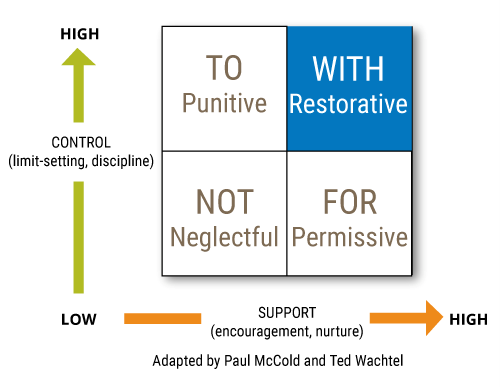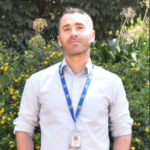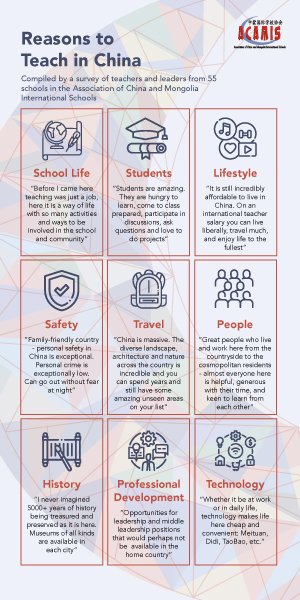By Alistair Goold
Restorative practices – a growing phenomenon gaining traction in international schools – hold the promise of transforming school culture and climate through evidence-based methodologies. In an era that increasingly values inclusivity and holistic development, restorative practices are well-suited to address the unique social and emotional needs of Third Culture Kids (TCKs). This raises the pivotal question: to what extent can restorative practices successfully cater to the intricate challenges faced by TCKs?
Restorative practices (RP) have the potential to play a significant role in meeting the TCKs’ need for identity and belonging. Research indicates that TCKs’ identities do not fit into mainstream social constructions. TCKs report a sense of rootlessness and not ‘fitting in’ with the surrounding culture. RP provide a platform for TCKs to share their experiences and explore their identities within a supportive international school community. Through restorative circles and discussions, TCKs can connect with peers who may share similar feelings of not fitting into mainstream social constructs, fostering a sense of belonging. RP can inform the pedagogy of the advisory programme to help achieve this end. International schools need to be responsive to this need and cover themes linked to identity and belonging in a cross-cultural context. Specifically, RP can support this through the use of circles, which can involve prompts inspired by the literature, created by the school or ideally in collaboration with students themselves.
It is also critical that RP methods and techniques are extended to families, offering them a toolkit for managing the transitions that come with the TCK lifestyle. Given that TCKs experience a large number of ‘separations’ during their developmental years, familial relationships are of heightened importance. Families in transition need a social and emotional support toolkit to deal with the process of transition. This can be achieved through international schools offering RP family workshops to teach the value of family circles which can help families build stronger bonds, discuss their feelings about separations, and develop strategies to cope with the challenges of moving. This can provide the emotional support young people need during transitions. In addition, transition programmes need to be well developed in international schools, both to welcome and say goodbye to families. Parents should be informed by the school of the absolute value of their relationships and the need to strengthen their bonds during transition.
Restorative circles and interventions can create the safe space that TCKs need as they seek to build meaningful connections and work through their fears and emotions relating to transition and change. By emphasising active listening and empathy, such practices allow TCKs to work through their complex emotions with peers and teachers who understand their unique experiences.
Furthermore, restorative circles, both proactive and responsive, should become an aspect of daily life in international schools to help foster healthy connections between students and staff and build social capital. Advisory (or personal, social and health education) should be a safe space that embraces a responsive curriculum that considers the social discipline window (see image below) as it works ‘with’ the students in an ongoing, responsive design as opposed to delivering a rigid curriculum ‘to’ them. This can be done through grade level leaders working closely with advisers, grade-level student representatives and counsellors in determining appropriate content and objects for the social and emotional aspects of the advisory curriculum.

It is also evident that TCKs experience varying degrees of loss throughout their lifetimes. Saying goodbye on a regular basis can lead to unresolved grief with no rite of passage to mark the occasion or to help them mourn. More can be done to meet these needs and support international students. RP can play a crucial role in facilitating rituals or ceremonies that honour such transitions. Through this, TCKs can have a forum to process their feelings of loss and grief, which provides closure. Restorative pedagogy can assist in developing rituals that mark occasions, say proper goodbyes and explicitly acknowledge loss when it occurs, whilst also celebrating change. This can be achieved by community circles – both proactive (to prepare for the departure of a student and to celebrate their contribution to the community) and responsive (to acknowledge and reflect on feelings of loss when students leave).
In addition, RP can help guide teachers in building meaningful and respectful relationships with TCKs. It cannot be assumed that new teachers have been trained this way, especially if they are recruited from various countries around the world. TCKs desire teachers who are skilled at building respectful, meaningful relationships and who are highly engaged. TCKs are cautious investors and teachers need to know about their unique social and emotional needs. To achieve this end, during new staff induction, teachers can be trained to use restorative approaches in their classrooms, getting to know each student individually and creating a supportive atmosphere where TCKs feel understood and valued. This can help overcome the cautiousness often associated with TCKs when it comes to investing in relationships.
TCKs need to belong, find their identity and work out their relationship with the several cultures that they often live within. International schools should help children to manage the complex feelings that come with transitions as opposed to denying them. The TCKs’ lived experience is dynamic, transient, mobile and constantly shifting. TCKs’ identity and belonging is not linked to a geographical location, but rather, it is about people and relationships. Restorative processes that value proactive relationship building, as well as relationship-centred responses to harm, can meet this need. This should include the full range of the RP continuum.
Integrating RP in international schools holds promise for addressing the distinct social and emotional needs of our TCKs. By establishing safe spaces for dialogue, restorative circles empower TCKs to navigate transitions, process grief and feel enhanced belonging. The ultimate way to achieve this would be to adopt RP at the systems level, embedding proactive and responsive community-building processes into daily life to foster healthy connections. In addition, ongoing teacher training is essential to ensure educators cater to TCKs’ unique social and emotional needs. By embracing proactive relationship-building as well as responsive approaches, our international schools can contribute to the holistic wellbeing of TCKs, build community health and foster a sense of belonging that goes beyond geographical boundaries.
Practical tips for school leaders:
- Implement restorative circles in advisory programmes to address social and emotional aspects. It is a mechanism more powerful than you realise.
- Offer RP family workshops to support families during transitions. Families look to schools for guidance in these times.
- Incorporate RP training into new teacher induction and ongoing professional development. Do not assume that your international staff are all on the same page with approaches to discipline.
- Create rituals or ceremonies using RP principles to acknowledge and process loss during student departures. This enhances wellbeing across our communities.
- Foster a collaborative approach between grade level leaders, advisers and counsellors to tailor the advisory curriculum to meet these unique social and emotional needs and avoid depending exclusively on ‘off the peg’ curricula that have not been designed with international schools in mind.

Alistair Goold is a grade level leader and social science teacher at the International School of Kenya. He holds a Master of Science in restorative practices and is the founder of Restorative360. You can connect with Alistair directly on LinkedIn.



